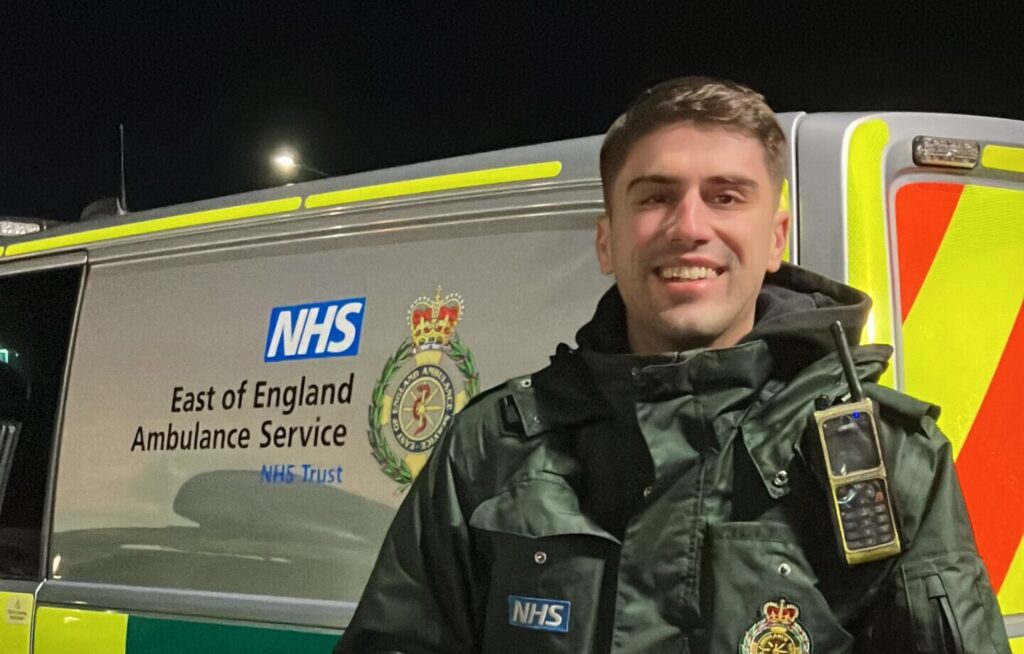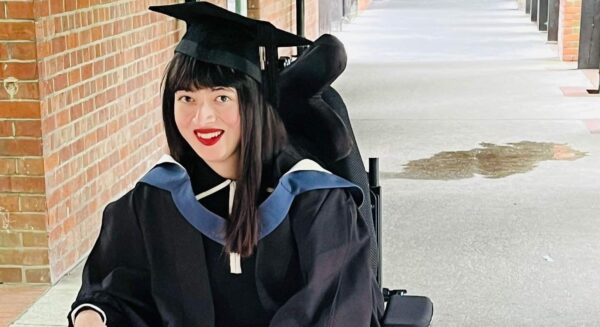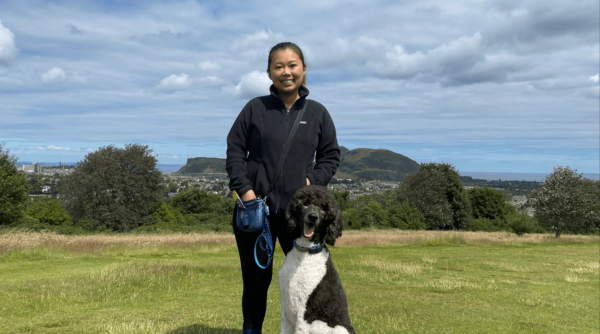Ben is a frontline paramedic who lives with facioscapulohumeral muscular dystrophy (FSHD). Despite receiving a diagnosis just before his career started, he’s still working in his dream job three years later. Ben shares the adaptions he’s had to allow him to continue working as a paramedic, what he loves about his job, and how his condition has affected him mentally.
“FSHD hasn’t stopped me working as a paramedic.”

I’m 27 and work full-time as a frontline paramedic. On paper, I’ve ticked the boxes: a demanding career, a degree, a recent master’s in trauma. But behind the uniform, I’m living with FSHD. It’s not immediately obvious, and that’s part of what makes this journey so complex — I look ‘fine’ to most people. But this is something I carry with me every day, both physically and mentally.
You don’t think much of the early signs
Growing up, I was always active. Tennis, football, athletics — you name it. I never stood still for long. But there were signs. My right chest muscle was noticeably thinner than the left. At some point as a child, I’d switched from using my right side in sport, to my left. Looking back, that was because my right side got weaker. At 17, I noticed my right shoulder blade winged out unnaturally when I raised my arm. Still, I brushed it off as just being slight in build. But when I started going to the gym at 18, it became clearer: I wasn’t gaining strength like my friends. I hit a plateau: low weights, shoulder pain, back pain, and even stumbling when walking.
It wasn’t until 2020 that I was referred to a specialist, and in 2021, after years of uncertainty, I got diagnosed with FSHD when I was 23.
The diagnosis hit me hard. I’ve always been an overthinker. I immediately went down the rabbit hole: no cure, progression. The unknowns were louder than anything else, and as someone who already struggled with anxiety, I spiralled for a while.
Being a paramedic has pushed me in the best way
But something inside me clicked. When starting my job as a full-time paramedic, despite the shock, I jumped in headfirst. Three years on, I’m still working on the front line. I’ve shocked myself, really. I didn’t expect to get this far with good functionality.
“I’ve had to adapt — I don’t do night shifts anymore due to my fatigue, and I’m now in a response car instead of on an ambulance, to reduce manual handling. But I’m still here, still responding to emergencies, still helping people. And I love it.”
The job suits the way my mind works. Fast-paced, varied, sometimes emotive, sometimes chaotic, but always purposeful. It’s helped me stay grounded. More than that, having a chronic condition myself has changed how I see patients. I understand the mental toll of living with something invisible, the frustration, the grief of future uncertainty. That insight and empathy is something I bring with me to every shift.
“I’ve had a few people with muscular dystrophy surprised when I understand their condition. That moment of ‘you get it’ on there faces is something I wouldn’t be able to give patients if I didn’t have a muscle wasting condition.”
Learning to push through the worries
The last few years have had their challenges — personally, professionally, emotionally. Family losses, difficult cases at work, moments where everything felt too much. But I’ve found that motivation often lives inside the struggle. Having this condition gives me a strange kind of drive. I want to stay healthy, keep learning, move forward. I don’t want this to stop me.
If I’ve learned anything, it’s that your brain doesn’t always tell the truth. My therapist once told me, “You don’t have to believe everything your mind says.” That’s stuck with me. I’ve learned to question the fear, the spiralling thoughts, the urge to give up.
“Because most of the time, we’re stronger than we think. I’m still aiming high — I’ve always wanted to work on the air ambulances. My condition doesn’t cancel those dreams.”
To the younger people reading this, maybe newly diagnosed or struggling with something similar, please know this isn’t the end. I want to be proof that a chronic condition doesn’t automatically remove your ambitions. It’s not one-size-fits-all. Progression varies and everyone’s story’s different, but nothing is off the table. Workplaces are getting better at adapting. I’ve been really lucky to have supportive employers. I was honest from the start, and they’ve worked with me, not against me.

